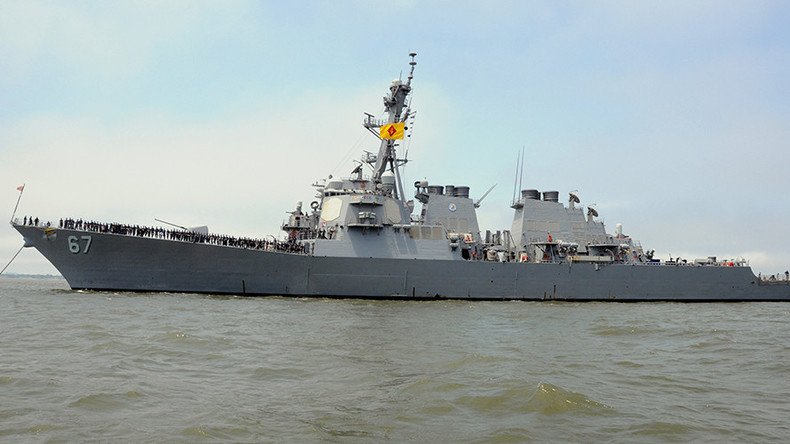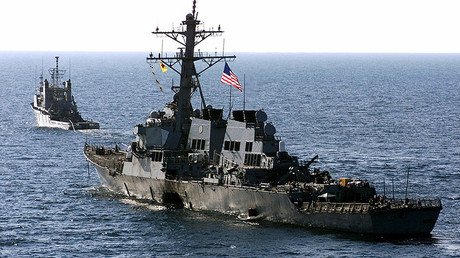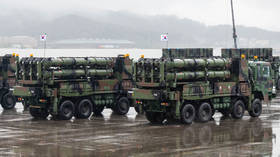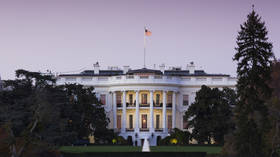Supreme Court clears path for military trial of USS Cole attack suspect

The US Supreme Court declined to hear an appeal by a man detained at Guantanamo Bay, who argued that the military court due to try him for the alleged masterminding of the 2000 bombing of the USS Cole in Yemen lacked jurisdiction.
The decision paves the way for the military war crime tribunal of Abd al-Rahim al-Nashiri to proceed, just days after the detainee’s entire civilian defense team resigned.
Pentagon-paid defense lawyers for Nashiri asked the Supreme Court (Nashiri v. Trump) to consider the case an exception to the law that generally required a conviction before civilian court review.
BREAKING: US Supreme Court declines to hear pre-tribunal challenge brought by Gitmo's alleged #USSCole bombing mastermind. Nashiri v. Trump pic.twitter.com/V9NjSeyDea
— Carol Rosenberg (@carolrosenberg) October 16, 2017
The attorneys argued that Nashiri’s years of torture in CIA custody merited a pretrial review to resolve the legal question of when the ‘War of Terror’ began. The lawyers argued the US was not fighting Al-Qaeda at the time of the attack, and therefore his acts were not war crimes.
“It is disappointing that, rather than answer the important questions that have made the military commission system dysfunctional for over a decade, the Supreme Court is content to leave it to flounder,” Nashiri’s appellate attorney, Michael Paradis, told the Miami Herald. Paradis said the case should be tried in federal court, which issued the indictment in 2002.
“The military commissions’ only reason for continuing to exist is to conceal this country’s use of torture,” he added.
Just in: US Supreme Court declines to review war court conviction of Gitmo’s lone life sentence convict Ali Hamza al Bahlul. #boycottpic.twitter.com/aG7sntZl2J
— Carol Rosenberg (@carolrosenberg) October 10, 2017
Nashiri is accused of orchestrating Al-Qaeda’s attack on the guided missile destroyer USS Cole on October 12, 2000, while it was refueling in Yemen. Seventeen US sailors were killed and dozens of others were wounded when a boat laden with explosives rammed into the side of the ship, tearing a hole.
Captured in the United Arab Emirates in October 2002, Nashiri was kept at CIA ‘black sites’ until 2006 and subjected to waterboarding, a mock execution and rectal abuse, and was confined to a coffin-sized box, according to the Senate Intelligence Committee report on CIA torture.
Nashiri has claimed he was tortured into making seven false confessions, among them an attack on a French ship, the USS ‘Cole’ bombing, and the bombing of a second US ship in the Persian Gulf.
In December 2008, a military commission charged Nashiri with war crimes for the bombing of the USS ‘Cole’. The charges, which carry the death penalty, were dropped in February 2009 but reinstated in 2011.
The trial is due to be held at the Guantanamo Bay US base in Cuba, where Nashiri has been held since 2006.
On Friday, Nashiri’s three civilian lawyers invoked an ethical conflict and quit the case, with permission of the Marine general overseeing the military court’s defense teams. The attorneys withdrew because they believed the government was listening in on their legal meetings, thus violating the attorney-client privilege, McClatchy reported.
“We’re in a position where we cannot meet with our client, and we cannot tell him why we can’t meet with him,” said Rick Kammen, one of the lawyers. “That’s an ethically untenable position to be in,” he added.
That leaves just one other attorney who has met with Nashiri and been accepted to serve on the case, a Navy lieutenant with no experience in death penalty trials.
By law, a capital trial cannot go forward without a seasoned death penalty counsel, which will likely cause a delay in what was on track to be the first such trial held at Guantanamo.
It is unclear what the judge, Air Force Colonel Vance Spath, will do about an upcoming three-week hearing, due to start October 30. The Pentagon is looking to hire a new lawyer.
The Saudi national is one of 41 captives who remain at Guantanamo. Following the September 11 terrorist attacks, the US had detained around 800 individuals suspected of ties to Al-Qaeda, but held the suspects for years at Guantanamo instead of trying them in US courts. Most inmates have been subsequently cleared for release. The UN ruled that the practices at Guantanamo, including arbitrary detention without trial, blatantly violated international law.













